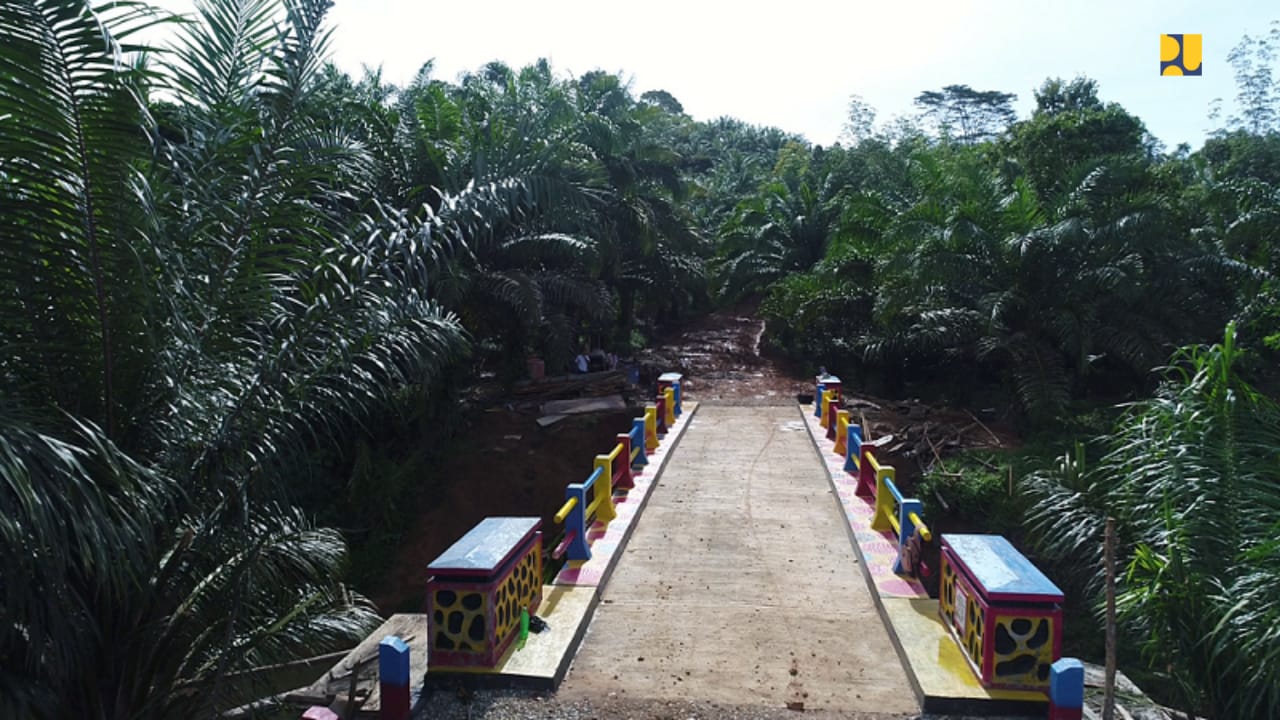Gov’t Speeds Up Distribution of Cash for Work Program to Reduce Unemployment

One of the cash labor-intensive programs implemented by Ministry of Public Works and Public Housing. (Photo by: Ministry of Public Works and Public Housing)
Ministry of Public Works and Public Housing (PUPR) continues to speed up the distribution of Cash For Work (PKT) Program to reduce unemployment during the COVID-19 pandemic.
In addition to allocating the 2020 PKT routine program budget amounted to Rp11.44 trillion which targets 613,513 beneficiaries, the Ministry also made changes to the scheme of infrastructure programs or activities that were originally regular to be implemented with a Labor-Intensive pattern with a budget allocation of Rp654.4 billion and a target beneficiary of 80,888 people.
Until mid-June 2020, all of the Ministry’s PKT programs, both routine and regular programs with labor-intensive patterns have absorbed 144,163 workers with a total budget disbursed amounted to Rp2.16 trillion or 17.9% of the total allocation of Rp12.1 trillion.
Minister of PUPR Basuki Hadimuljono stated that the PKT program was implemented through infrastructure development that involved the local communities/residents as actors of development, especially for small-scale infrastructure or simple work that did not require technology. The main purpose of the Labor-Intensive program is to maintain the purchasing power of people in rural areas or distribute development funds to villages.
“In addition to accelerating economic recovery and increasing people’s purchasing power, the PKT program also aims to distribute funds to villages/remote areas. The program implementation must also follow the physical & social distancing protocols to prevent the spread of COVID-19,” the Minister said.
Expert Staff of the Minister of PUPR for Technology, Industry and the Environment Lukman Hakim stated plan for the PKT program at the Directorate General of Human Settlements on the additional budget allocation of Rp10.6 billion with the addition of a target beneficiary of 350 people.
The labor-intensive program budget is mainly used for the Irrigation System Accelerated Program (P3-TGAI), Routine Maintenance of Roads & Bridges, Regional Socio-Economic Infrastructure Development (PISEW), Development of City Without Slums (KOTAKU), Reduced, Reused, and Recycled Waste Management Sites (TPS3R), Community Based Drinking Water Supply and Sanitation (Pamsimas), Community-Based Sanitation (Sanimas), and New Development and Improvement of Self-Help Housing.
There are also 18 infrastructure activities or programs which implementation was changed using labor-intensive methods for work duration of 30-100 days. In Water Resources sector, these activities include support for management of Greater Basin Territory Center, operation and maintenance of water resources infrastructure facilities, management of dams, lakes and other water retaining structures, development/rehabilitation of irrigation networks such as D.I (irrigation areas) of Rentang and Slinga, flood and lava controls, main urban drainage management, coastal protection, improving the management of integrated water resources, as well as supply and management of ground and raw water.
In the Highways sector, the programs include preservation of roads in 282 locations, construction of roads in 51 locations, construction of bridges in 69 locations, operation and maintenance of Freeway & Urban Roads (JBHP) in 36 locations.
In the Human Settlements sector, the activities in 274 locations include developing residential areas, building and rehabilitating educational infrastructure, developing sports infrastructure and markets, maintaining and developing Drinking Water Supply Systems (SPAM), structuring buildings and the environment. One example is the rehabilitation and renovation of school infrastructure.
Finally, in the Housing Sector, the program is implemented through activities to improve the quality of Public Infrastructure and Facilities (PSU) in the Low-Income Community housing complex (MBR) for 303 beneficiaries spread in 69 locations. (BKP Kementerian PUPR/EN)
Translated by: Fairuzzamani Inayatillah
Reviewed by: Mia M. Bonaedy








